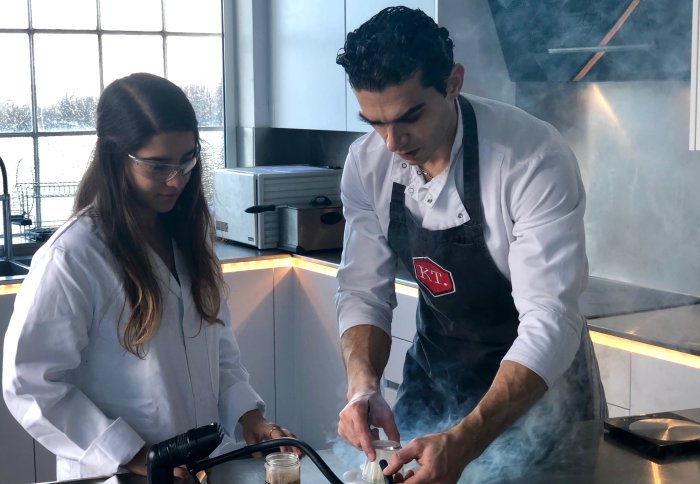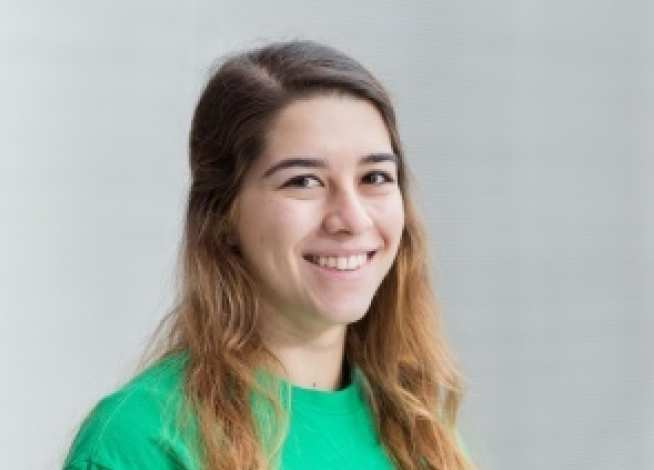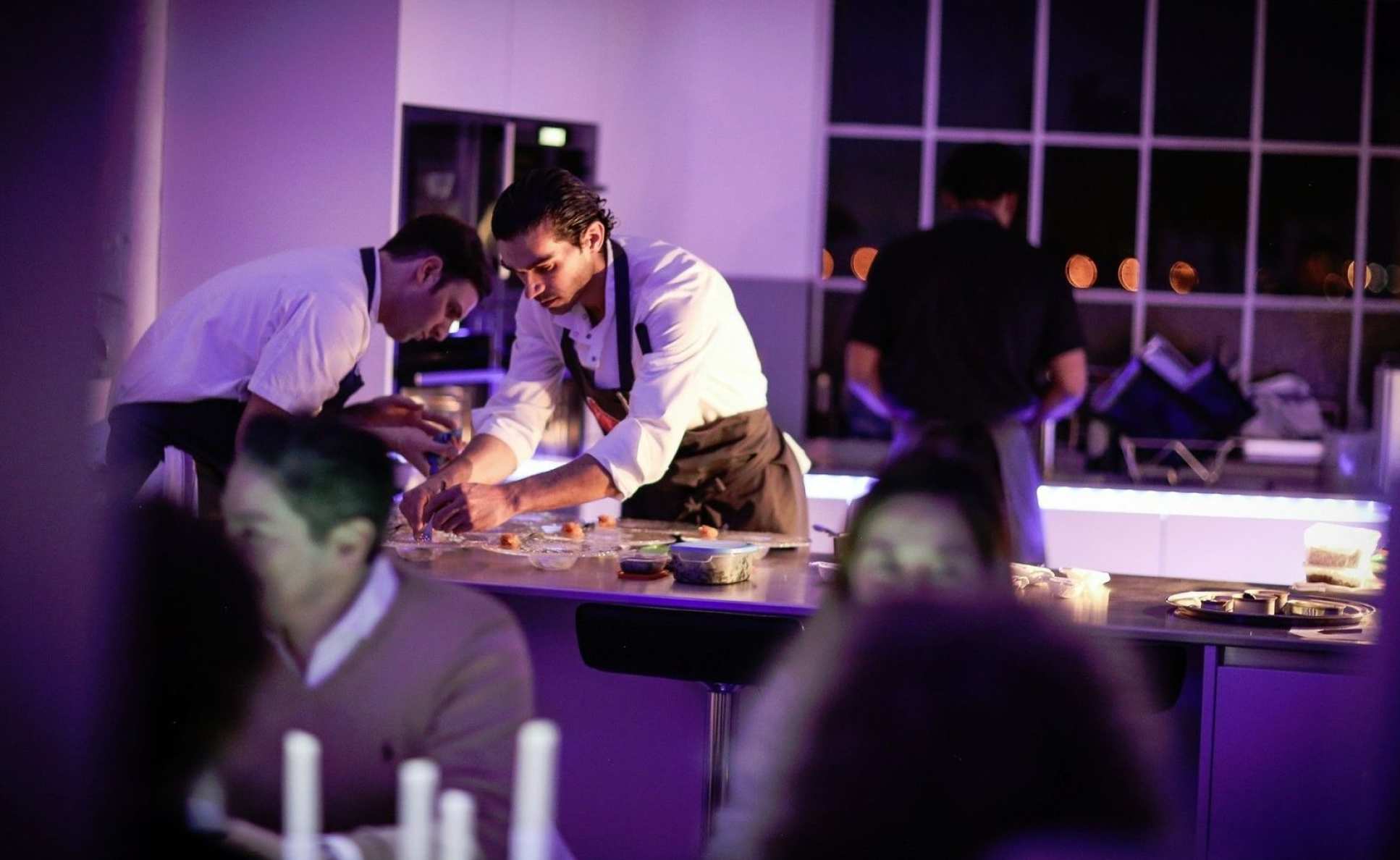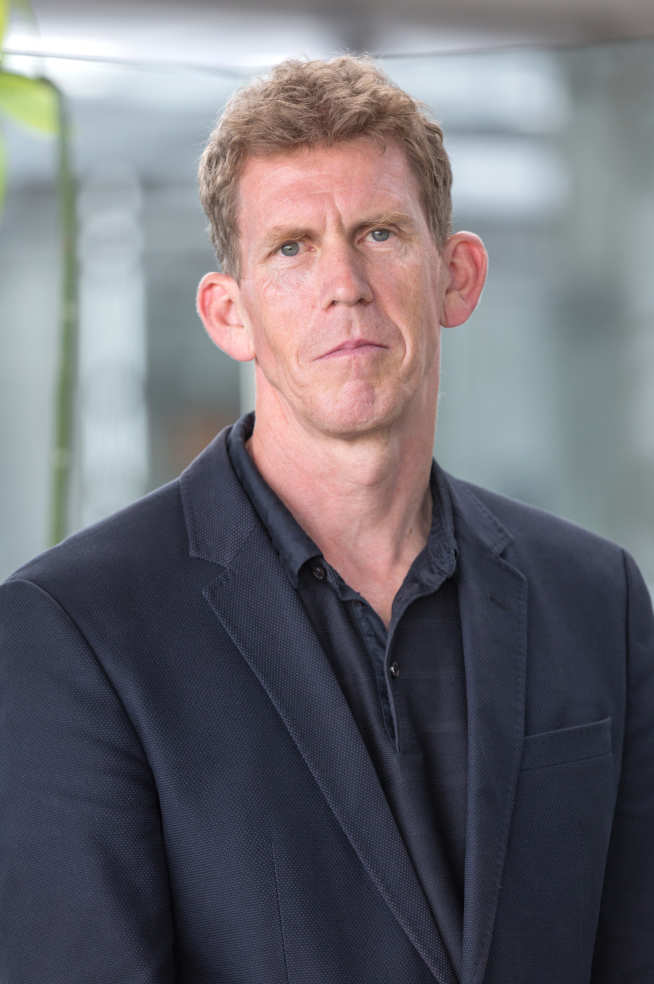Chemistry students get a taste of being cooking maestros in ‘Chemical Kitchen'

Imperial alumna Katerina Stavri (left) and chef Jozef Youssef (right)
Imperial Chemistry students will take part in an innovative module that mixes lab skills with those needed in high-end gastronomy.
The College's Department of Chemistry is collaborating with gastronomy expert Jozef Youssef and the Basque Culinary Centre to develop a unique interdisciplinary module - ‘Introduction to Culinary Practice’ - which introduces students to the parallel world of culinary science.
"The Chemical Kitchen will offer an amazing experience for all 1st year chemistry students at Imperial to kick-start their practical training in an unconventional and provocative way." Professor Alan Spivey
This will be piloted as an experiment that all 1st year Chemistry undergraduate students will take in Autumn 2019-20 as part of a ‘Techniques Bootcamp’ in groups of eight students. The Chemical Kitchen will encourage students to develop an orderly, planned approach to working in a complex and potentially hazardous environment.
The pilot experiment will be aimed at developing key culinary skills, including following a recipe (and experiencing the ambiguities and challenges of translating written instructions into action); documenting the stages of creating a new dish; developing the skills of observation, precision and dexterity; achieving consistency of presentation (repeatedly ’plating’ a dish according to prescribed instructions); and listening to constructive criticism.

Katerina Stavri, an alumna of the Department of Chemistry, visited Jozef's kitchen to try out some of techniques firsthand. Katerina said: "This great initiative will provide a fun, non-threatening chemistry 'laboratory' for first year students allowing them to gain practical experience in a non-competitive environment. There are a lot of similarities between a chemistry laboratory and an experimental kitchen; from thoroughly recording observations to maintaining a clean and tidy work-space, students will have the opportunity to gain, practice and enhance skills needed in the lab in an interdisciplinary setting.
"A Chemical Kitchen requires creativity and intuition in the same way as research labs; this lab serves as a great stepping stone for young chemists who will join research groups in later years of their studies."
Ready, steady, cook
The worlds of science and gastronomy increasingly overlap, as shown in a number of popular television series and on diners' plates at some of the world's most inventive restaurants.
Jozef Youssef intends to expose students to the full range of culinary technology. This will involve instruments adopted increasingly by chefs but taken directly from the world of chemical research, including centrifuges, rotary evaporators and sonic homogenisers.

Creating an innovative curriculum

The innovative module is one of many that is being spearheaded by academics at Imperial. Roger Kneebone, Professor of Surgical Education and Engagement Science, is one of the experts involved in developing the Chemical Kitchen. Professor Kneebone leads an unorthodox and creative research group, bringing together clinicians, educationalists, computer scientists, psychologists, social scientists, design engineers and experts from the visual and performing arts.
Professor Kneebone said: "The Chemical Kitchen will encourage social cohesion amongst students, developing a sense of collegiality rather than competition within a safe environment that encourages personal growth and supportive behaviour."

Professor Alan Spivey, Assistant Provost (Learning & Teaching), said: "The Chemical Kitchen will offer an amazing experience for all 1st year chemistry students at Imperial to kick-start their practical training in an unconventional and provocative way. Whether you want to be a chemist or a chef skills such as meticulous planning and detailed observation and recording are vital. The plan is to encourage safe experimental practice, practical reproducibility and appreciation of the often overlooked parallels between the practice of chemistry and myriad other activities which require manual dexterity so as to inspire our students to excel as experimental scientists.”
Article text (excluding photos or graphics) © Imperial College London.
Photos and graphics subject to third party copyright used with permission or © Imperial College London.
Reporter
Murray MacKay
Communications Division